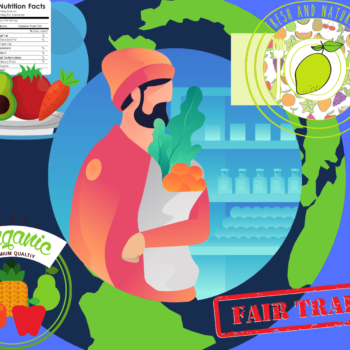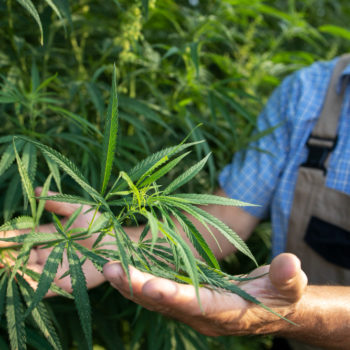|
|
Travelling sustainably has become increasingly important as the effects of climate change continue to worsen. We can reduce our carbon footprint and minimize our environmental impact by adopting sustainable travel practices. From choosing eco-friendly accommodations to supporting local communities, we can make our journeys more sustainable in numerous ways.
This article will provide you with 10 useful tips for sustainable travel. Whether you’re a seasoned traveller or planning your first adventure, these tips will help you explore the world in an eco-friendly and responsible way. So, let’s dive in and discover how we can protect the planet while satisfying our wanderlust.
Key Takeaways
- Pre-shop for eco-friendly travel items (zero waste products, reusable items, sustainable sneakers, ethical sandals, eco-friendly camping gear, eco-friendly toiletries, and ethical electronic essentials).
- Stay in a location longer and consider volunteering or participating in work exchange programs.
- Support eco-conscious accommodations by choosing eco-friendly homes, homestays, and couchsurfing options.
- Support the local economy by engaging in responsible tourism practices, supporting local businesses and artisans, and contributing to local conservation and development projects.
1. Pre-Shop for Ecofriendly Travel Items

Prepare for an eco-friendly journey with sustainable travel gear, including a reusable water bottle (stainless steel or glass) to stay hydrated while reducing carbon emissions. Go further by adopting reusable items like bamboo or stainless steel cutlery and leak-proof food containers, minimizing disposable waste. Opt for recycled material sneakers or ethical fabric footwear, and vegan leather or natural fiber sandals for warmer climates.
Complete your eco-travel kit with green toiletries such as reusable makeup pads, toothpaste tabs, and bar soaps. These choices eliminate single-use packaging, reduce plastic waste, and support eco-conscious brands. With these items in tow, your journey will promote green travel practices, inspiring others to follow suit. Pack your reusable water bottle and embark on an adventure benefiting you and the planet.
2. Travel with Slow Intention

Slow travel involves immersing in local culture for an extended time, boosting authenticity and sustainability. While longer stays reduce your carbon footprint and aid local businesses. Use this relaxed pace to deeply engage with culture, learn the language, enjoy local food, and join activities, enriching your experience and conserving heritage.
Extend your stay to build local connections, even volunteering. Choose eco-stays and support local businesses for a mindful impact. Thus, slow travel means more than time; it’s a positive impact, beauty preservation, and treasuring moments. Embrace the pace, connect with cultures, and savor the beauty of slow travel.
3. Support Sustainable Accommodations
You can actively participate in sustainable tourism by opting for eco-conscious accommodations. This can be achieved by choosing platforms like Ecobnb, Bookitdifferent, and Wayaj over traditional ones like Airbnb. These platforms provide a broad array of sustainable accommodation options. As a conscious traveller, this aligns perfectly with your values.
Select platforms promoting energy efficiency, waste reduction, and water conservation. These choices drive sustainable tourism and encourage more hosts to adopt eco-friendly practices. Consider budget-friendly options like homestays and couchsurfing, supporting locals while enjoying cultural exchanges.
Prioritize hosts who contribute to their communities’ well-being and environmental preservation. Your accommodation choices trigger positive change in the tourism industry, inspiring responsible travel for resource preservation and destination protection.
4. Support Local Businesses for Lasting Impact

When on vacation, contribute to the local economy and craftsmen. Shop locally and choose handmade items to benefit small businesses and the community directly.
Three key reasons to support the local economy:
- Empowerment: Your purchase offers job opportunities and income to locals, aiding their livelihoods and families. It supports entrepreneurs, fostering economic growth.
- Cultural Preservation: Buying traditional crafts sustains heritage, keeping cultural diversity alive through generations. Supporting craftsmen maintains their practices.
- Sustainable Development: Preferring local businesses reduces reliance on external factors, promoting fairness and entrepreneurship. It encourages innovation and economic resilience.
5. Support Eco-friendly Hotels

Choose eco-friendly hotels to lighten your travel’s environmental impact. These accommodations are gaining popularity as travellers seek planet-friendly options. Eco-hotels minimize their environmental footprint through energy and water conservation, reducing waste, and avoiding single-use plastics. Many hold sustainability certifications, showcasing their commitment to the planet. Opting for eco-friendly hotels supports sustainability, preserves the environment, and promotes responsible tourism.
6. Book Local Travel Guides & Tours

Discover a destination authentically by booking local travel guides and tours. Not only do you gain insider expertise, but you also support the local economy and the travel industry.
Opting for local guides sustains livelihoods, preserves culture, and keeps money within the community. These guides offer unique insights, sharing history, traditions, and hidden gems. They take you off the beaten path and provide insider experiences.
Choosing local tour operators directly benefits the community, creating jobs and preserving cultural identity. Prioritize operators aligned with sustainability and responsible tourism, contributing positively to the environment and local communities.
7. Consider Greener Modes of Transportation

Combat carbon emissions by opting for eco-friendly public transport like buses and trains. These choices reduce pollution, traffic, and your carbon footprint. Trains excel in energy efficiency, emitting less carbon than cars or planes. Enjoy scenic, comfortable journeys while minimizing environmental impact. Buses provide accessible and cost-effective travel, with many adopting hybrid or electric vehicles. Public transport eases congestion, promotes cleaner air, and fosters cultural engagement with fellow travellers.
8. Offset Travel’s Carbon Emissions

Counter air travel emissions with carbon offset programs that invest in renewable energy and reforestation. Calculate your footprint online (airline tools, Atmosfair, CarboTax) and invest in verified projects to cut emissions and support sustainability. Share to inspire others and choose offset airlines or platforms for greener travel. For your next trip, remember carbon offset programs – a practical step toward a balanced environment and a brighter future. Make impactful choices.
9. Respect the Local Wildlife and Environment

Here are some practices to be responsible for local wildlife tourism and take care of the environment.
- Understand the potential impact of sustainable journeys.
- Discover ways to travel by supporting, not harming, these ecosystems.
- Observe wildlife with binoculars or camera zoom to avoid disruption.
- Stay on designated trails to safeguard fragile ecosystems.
- Avoid feeding or touching animals to prevent diet disruption, stress, and disease.
- Dispose of trash properly to prevent pollution and preserve clean habitats.
- Support conservation projects and sanctuaries through donations or volunteering for species and habitat protection.
10. Choose Sustainable Countries

Consider the cultural heritage of New Zealand or Costa Rica for eco-friendly getaways with renewable energy and preserved natural areas. New Zealand and Costa Rica have rich cultural heritages, stunning natural landscapes, a commitment to renewable energy, and a focus on preserving their natural areas. These characteristics make them excellent choices for eco-friendly getaways that allow travelers to appreciate and immerse themselves in sustainable practices and breathtaking natural beauty reserves.
Frequently Asked Questions
Sustainable travel means eco-friendly travel or responsible travel, is a way of exploring the world while minimizing your impact on the environment and supporting local communities. It considers social, environmental, and economic aspects of travel to ensure that tourism has a positive long-term effect.
Sustainable travel is important because it helps protect our planet, preserve natural and cultural resources, and support the well-being of local people. It promotes environmentally friendly practices, reduces carbon footprint, and fosters a more responsible approach to travel and tourism.
Sustainable travel can benefit local communities by supporting their economy, creating job opportunities, and preserving their culture and heritage. By choosing to stay in local accommodations, eating at local restaurants, and purchasing locally made products, travellers contribute directly to the livelihoods of the local people and help to empower their communities.
Yes, some travel destinations are more sustainable than others. This can be due to various factors, such as the destination’s commitment to sustainability, the presence of sustainable travel initiatives, the accessibility of eco-friendly accommodations, and the efforts to preserve natural and cultural resources. It’s best to research and choose destinations that prioritize sustainable travel practices.
To reduce your carbon footprint when flying, consider direct flights, share rides or carpool, and offset emissions. Support airlines with sustainability initiatives and choose destinations with renewable energy policies. Advocate for carbon offset programs.
Yes, there are eco-friendly alternatives and locally sourced single-use toiletries in hotels. You can bring your reusable toiletry bottles or choose hotels that provide refillable dispensers. Doing so contributes to reducing plastic waste and promoting sustainability in the hospitality industry.
To be an eco-conscious traveller, you can: 1. Choose airlines and travel providers that have sustainable practices and carbon-neutral initiatives. 2. Minimize your use of plastic by bringing your reusable water bottle and toiletries. 3. Respect the environment by not littering, staying on designated paths, and not disturbing wildlife. 4. Support sustainable tourism organizations and programs that promote responsible travel practices. 5. Educate yourself about local customs, traditions, and environmental issues before visiting a destination. 6. Spread awareness about sustainable travel among fellow travellers and friends to encourage more eco-friendly practices.
Sustainable travel fully accounts for its current and future economic, social, and environmental impacts. It aims to minimize negative and maximize positive impacts, ensuring that the destinations, local communities, and natural resources are preserved for future generations. On the other hand, mass tourism is characterized by large-scale, unmanaged tourism activities that may lead to overcrowding, environmental degradation, and exploitation of local resources.
When travelling in national parks, you can make sustainable choices by 1. Following park rules and regulations to protect wildlife and natural habitats. 2. Sticking to designated hiking trails and reducing your footprint on sensitive areas. 3. Using reusable containers for food and drinks to minimize waste. 4. Supporting park conservation efforts through donations or volunteering. 5. Being respectful of wildlife by observing from a safe distance and not feeding them. 6. Opt for eco-friendly transportation options, such as electric shuttles or bicycles, when available.
Yes, group travel can be sustainable if the group follows eco-friendly practices and supports responsible tour operators. When travelling as a group: 1. Choose tour operators or travel agencies that prioritize sustainability and have sustainable travel programs. 2. Opt for accommodations that can cater to groups while minimizing their environmental impact. 3. Follow sustainable travel practices collectively, such as using public transportation or reducing waste. 4. Engage in community-based activities that benefit local people and promote sustainable development.
Some best sustainable hotel practices include: 1. Implementing energy-saving measures such as energy-efficient lighting, solar panels, and smart room controls. 2. Conserving water through low-flow faucets and toilets and reusing towels and linens. 3. Reducing waste by implementing recycling and composting programs throughout the hotel. 4. Sourcing food locally to support local farmers and reduce carbon emissions from transportation. 5. Providing guests with eco-friendly amenities, such as refillable toiletries and filtered water stations. 6. Educating staff and guests about sustainable practices and encouraging their participation.
Conclusion
Travelling sustainably is not just a choice. It’s a responsibility to be a sustainable traveler. By adopting eco-friendly habits, we can greatly contribute to the protection of our environment while also supporting local communities. Let’s break down the ways you can make your travels more sustainable.
Firstly, make a habit of shopping for eco-friendly items before embarking on your journey. A wide range of products is available, from biodegradable toiletries to reusable water bottles. These small changes can make a big difference in reducing plastic waste.
Secondly, choose to travel slowly and intentionally. Rather than rushing from one tourist hotspot to another, take your time to immerse in the local culture, eat local food and use local services. This not only reduces your carbon footprint but also helps support local economies.
Next, make sure your accommodations are eco-friendly. Many hotels and resorts are now prioritizing sustainability in their operations. They use renewable energy, recycle waste and conserve water. Look out for such practices when you book your stay.
Also, consider using greener modes of transportation. Walking, cycling or using public transport over private taxis and cars can significantly lower carbon emissions. If this isn’t possible, participating in carbon offset programs can help counterbalance the impact of your travel.
Respecting wildlife and the environment is another important aspect of sustainable travel. Avoid participating in activities that harm animals or disturb their natural habitats. Choose destinations that have strong environmental policies and are known for their conservation efforts.
In conclusion, every choice we make while traveling can have a positive or negative impact on our planet. By opting for more sustainable ways, we can ensure our travels are not just memorable but also responsible. So, let’s embark on this journey towards more sustainable travel.
Pack your luggage now, enjoy your travel experience and remember to leave only footprints behind!












